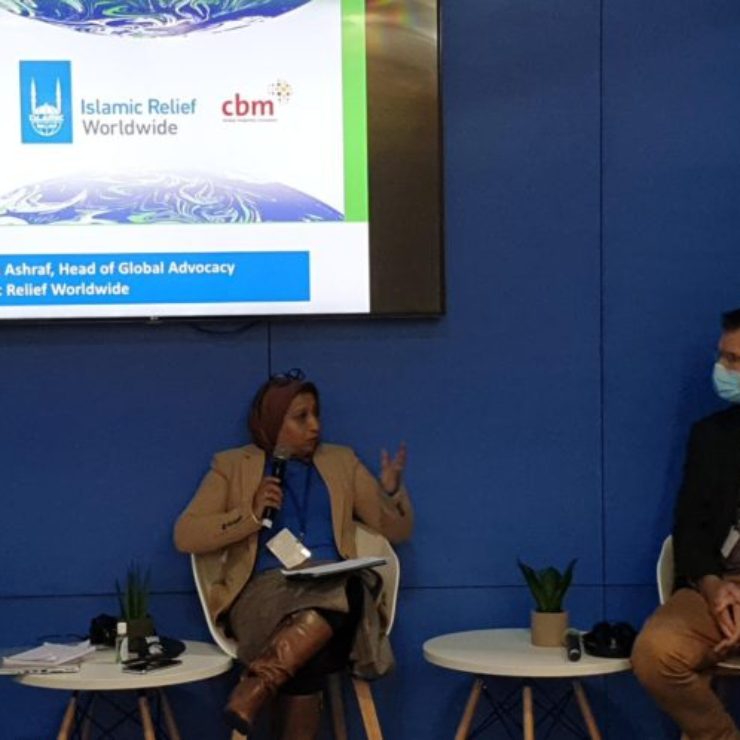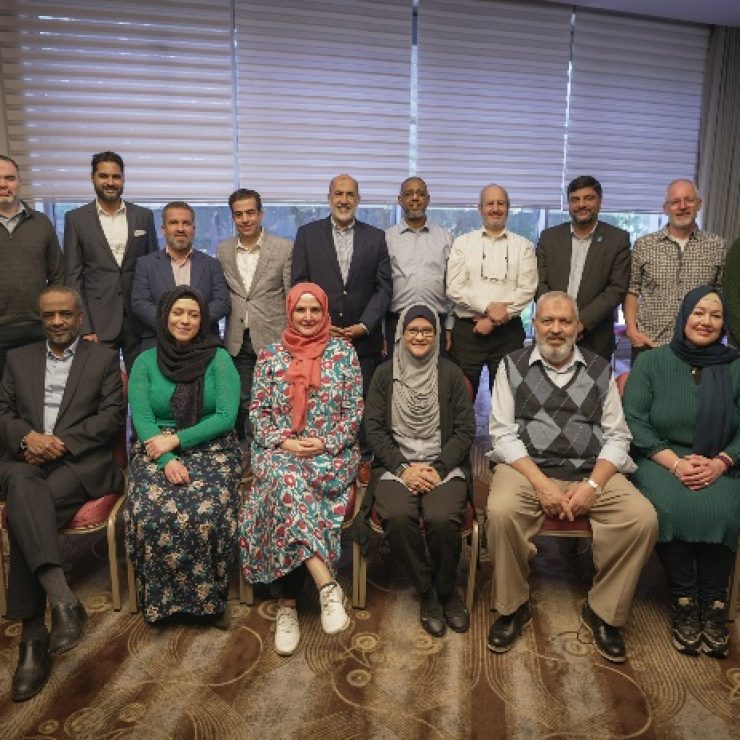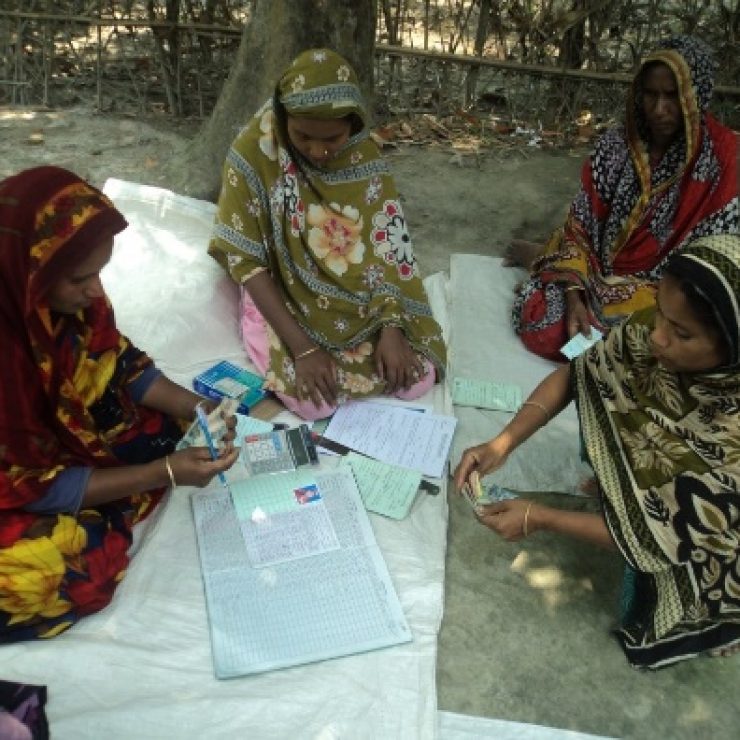Prioritising quality and accountability
Islamic Relief cares deeply about the quality of our work. We do all we can to ensure we provide support that is timely, relevant, effective, does no harm and builds on the resources and capacity of affected communities and individuals. This year, we were again recognised for systematically prioritising quality and accountability across our programming with recertification against the Core Humanitarian Standard on Quality and Accountability (CHS) – a rigorous global standard for humanitarian work.
The recertification came after auditors reviewed, on a sample basis, our offices in Kenya, Somalia, Bangladesh, Jordan and Bosnia, as well as our international headquarters in the UK. Speaking with staff and members of the communities we serve, auditors found we work closely with local and national authorities to provide services quickly and effectively to those in need. Communities themselves told auditors that our programmes are well designed to meet their needs while also being adaptable, and we were also found to have robust complaints and feedback systems.
This year we also made further improvements to our programming by introducing a rigorous set of minimum requirements for all our projects. The new Monitoring, Evaluation, Accountability and Learning Framework helps make sure we effectively design, plan, implement, monitor and learn from our projects, in an accountable manner.


Hunger emerged as a key issue for Islamic Relief this year, with conflict, natural disasters, and the Covid-19 pandemic adding to the worries of many around the world about where their next meal is coming from. Our CEO was chosen to address more than 100 CEOs from World Food Programme (WFP) partner organisations at its Annual Partnership Consultations. Speaking during a panel on ‘Advocacy on the Path to Zero Hunger,’ Waseem Ahmad underlined the importance of listening to insight from frontline colleagues in local and national non-governmental organisations. Waseem also attended a high-level United Nations event on famine prevention, organised by the Group of Friends on Action on Conflict and Hunger, the United Nations Office for the Coordination of Humanitarian Affairs (OCHA), the Food and Agriculture Organization of the United Nations (FAO) and the WFP.
Making better use of cash and vouchers
Cash and vouchers are increasingly being recognised as an effective and dignified means of assisting vulnerable people, and in 2021 Islamic Relief took further steps to increase their use in our programming in line with our Grand Bargain commitment. In a dedicated policy, we set out why and how we can help people in crisis more swiftly and effectively through the use of cash and vouchers. This approach not only meets the most pressing needs, but also protects people against resorting to harmful coping strategies and provides a much-needed boost to struggling local economies.
Last year we delivered £22.5 million in at least 31 emergency and livelihood recovery responses, including in challenging contexts such as Gaza, Niger, Somalia, Sudan, Syria and Yemen. We reached over 350,000 people with cash assistance in the form of food vouchers, and cash transfers including cash for work. Providing people with money enables them to meet their food, shelter, health as well as other basic and livelihood needs while preserving their choice and dignity.
“It is our hope card,” says 31-year-old Atef, a father of five, describing the e-voucher his family receives from Islamic Relief. As a seasonal agricultural worker in Gaza, when Atef is able to work he earns less than 15 shekels a day – not enough to feed his family or to repair their dilapidated, windowless house. With the 586 shekel e-voucher they get from Islamic Relief every month, they can buy food and other essentials from nearly 200 shops in the Gaza Strip. It has made a big difference to the family, points out his wife, Ekhlas: “The food voucher helped us so much. Our food situation has improved and so has the children’s health.”
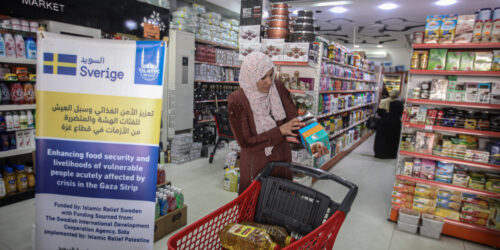
Leaving no one behind

Islamic Relief is committed to ensuring that our humanitarian and development actions are accessible to people living with disabilities. Our extensive work to ensure people with disabilities have a say in our programmes and policies included two important new initiatives this year.
In Sudan, we analysed the needs of refugees with disabilities living in camps for people fleeing the conflict in Tigray. Working with the International Disability Alliance, two researchers with disabilities interviewed affected people and compiled a report that revealed the persistent exclusion of people with disabilities across all sectors. The report provided practical recommendations to ensure protection for the rights of people with disabilities during times of armed conflict. In addition, we worked with organisations representing people with disabilities in the Occupied Palestinian Territory to make our complaints and feedback mechanism more inclusive and effective.
Contributing to faith-inspired action
In 2021 we continued our efforts to lead interfaith approaches to humanitarian relief and development. CEO Waseem Ahmad spoke at the 3rd Vatican Dialogue on Energy Transition, an online event organised by Notre Dame University and the Dicastery for Promoting Integral Human Development. Discussing ‘Just Transition’, Waseem highlighted Islamic Relief’s work empowering communities to build resilience and adapt to the challenges of climate change.
We participated in several interfaith events in and around COP26 in Glasgow, joining hands with Jewish, Christian, Hindu, Buddhist and other faith groups to galvanise faith-based action towards tackling climate change. Our Chief Executive took to the stage in COP’s Green Zone, speaking alongside Dr Antje Jackelén, Archbishop of the Church of Sweden, at an event exploring what faith actors and the international community can do to ensure faith becomes a catalytic force for climate and gender justice for people and communities affected by crisis.

Teaming up tp help vulnerable children
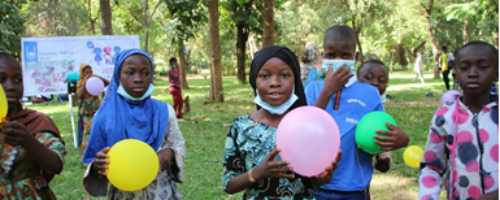
Islamic Relief’s work with children was the focus of a new three-year collaboration period with UNICEF, announced in December 2021. The partnership is a first for both organisations and will see us join forces with UNICEF as a partner in fundraising, implementation and advocacy. UNICEF and Islamic Relief have committed to using their combined networks, resources and expertise in areas including education, climate change and gender justice to improve the lives of vulnerable children.
